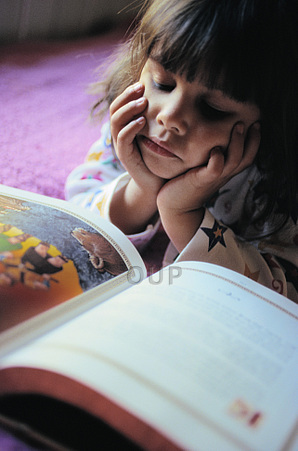 Ahead of his talk at IATEFL 2011 in Brighton entitled ‘The Thrill of Discovery: Reading to Learn’, Verissimo Toste, an Oxford teacher trainer, shares how he came to learn that students will be motivated to read in a foreign language if allowed to discover for themselves the thrill of reading.
Ahead of his talk at IATEFL 2011 in Brighton entitled ‘The Thrill of Discovery: Reading to Learn’, Verissimo Toste, an Oxford teacher trainer, shares how he came to learn that students will be motivated to read in a foreign language if allowed to discover for themselves the thrill of reading.
My first experience with encouraging students to read was with a class of 10-year-olds in Portugal. 28 students walked around 4 tables full of different simplified readers. Their objective was simply to choose one to read, a much more difficult task than I was aware of at the time. One student, Eduardo, summarised the feelings of the class succinctly and directly: “Why should I read in English when I don’t even read in Portuguese?”
A good question. I realised most of them were doing this because I had asked them to, because they trusted me. I looked at Eduardo and told him he didn’t have to read if he didn’t want to. Surprised, and not really believing me, he sat down and waited for the bell to ring, putting me to the test. I walked around the room answering students’ questions, asking what they liked to watch on TV. I figured this would give me an idea of what would interest them.
A few minutes, Eduardo at my side. “Teacher,” he said, “this book is about football. Can I take this one?” When I said yes, he was obviously surprised that a book about football was acceptable. He walked away with the book. I knew that he was now worried about being able to understand it in English. Eduardo was not known for being a good student in general, and even less so in English. I left him alone, keeping an eye on him from a distance. Minutes later he was at my side again. “Teacher, did you know that Pele was only 17 in his first World Cup?” I told him I didn’t. Eduardo proceeded to tell me a lot of other information about football. By the end of the class he decided he would try reading the book.
Eduardo went on to read many other books that year and nearly 20 years later I still remember what I learned about motivating students to read – simply let them read. Let them discover the thrill of learning and the sense of achievement in reading in a foreign language.
Carl Rogers said “we cannot teach another person directly; we can only facilitate his learning.” Reading allows teachers to facilitate their students’ learning. It reinforces classroom learning, as the vocabulary and grammar of our syllabuses, are all there. More importantly, all those verb tenses, adjectives, nouns, and adverbs are there with the purpose of communicating information. The language appears in a context, it is a means to an end and not an end in itself. After all, we don’t normally go to a bookshop and choose a book to read because it has great examples of the ‘present perfect’.
Reading is also a great motivator to learn English. It exposes students to different worlds and different experiences, and it allows them to share these experiences with each other. More importantly, in my view, reading gives students a sense of achievement. It shows them the result of the years they have been studying English. In designing activities to accompany students’ classroom reading, I always make sure that my activities do not interfere with the magic that is reading. The aim of my activities is not to motivate students to read – the books will do that – it is to help them share their reading experience.
Eduardo taught me that, and I still remember the smile of satisfaction when he finished a book and the sense of expectation as he browsed the bookshelf for another.


You couldn’t have stated it better. I truly enjoy reading and I’ve used this tool to my advantange not only to get general knowlegde but to improve my own proficiency in English. I’ll make the most out of your experience when teaching my students the love for reading in both native and foreign language. Thanks.
Thank you very much for this article! It’s an interesting issue for us teachers: I also have problems getting 11-14 year-olds to read and it takes me a while to get them to borrow a book and read it just for pleasure. Young kids seem to be more interested in computer games or TV programmes nowadays. However, I will not give up…..!